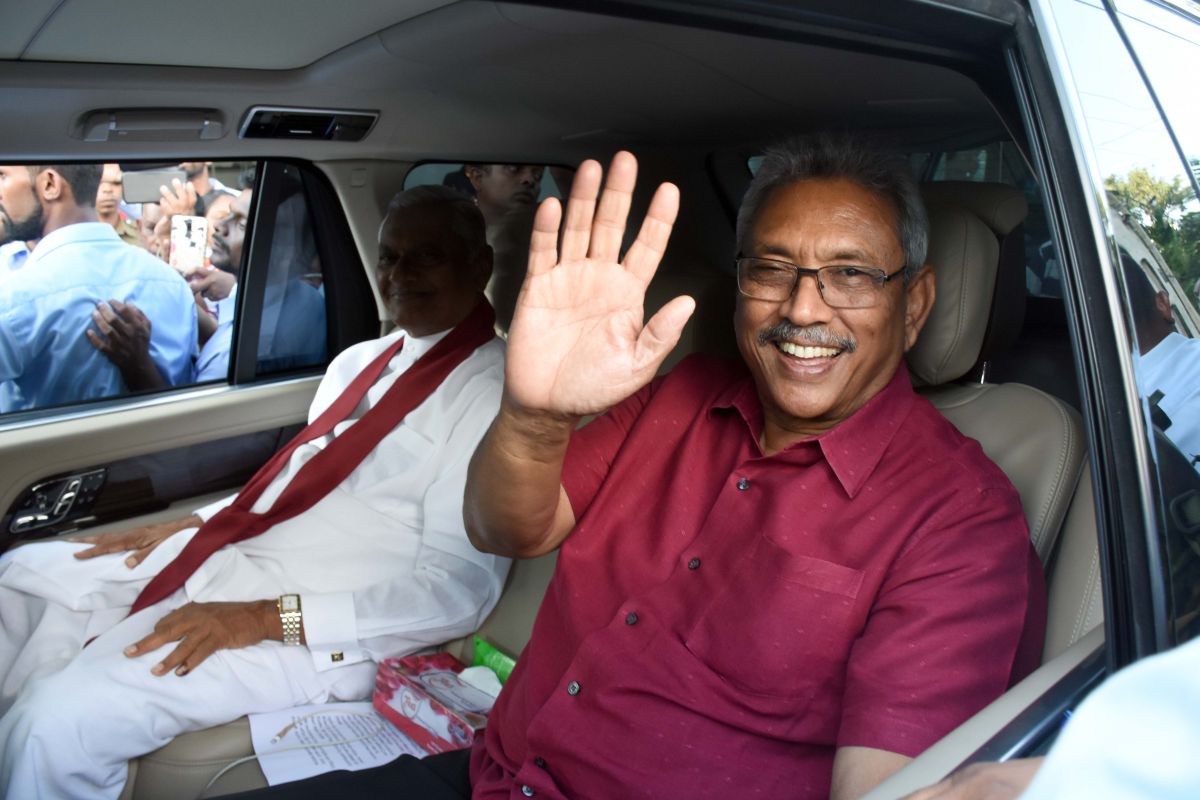Group of European countries pledge expanded support for Ukraine
The leaders of Nordic and Baltic countries, joined by Polish Prime Minister Donald Tusk, voiced their continuing and expanding support for Ukraine.
The new administration must of necessity agree on a common programme for economic recovery, and an all-party common minimum programme.

Gotabaya Rajapaksha (Photo: IANS)
In the midst of a fraught situation, Sri Lanka seems headed for a change of government with the future fogbound and the patience of people sorely tried. Confusion gets worse confounded with reports that the whereabouts of President Gotabaya Rajapaksa are unknown. On Sunday, the opposition parties agreed to form a new government a day after the President and Prime Minister offered to resign following the most dramatic turmoil, with protesters storming the leaders’ homes in rage over an economic crisis. Protesters remained in President Rajapaksa’s residence, his seaside office and the Prime Minister’s home, saying they would stay until the resignations are official. To dispel speculation over his whereabouts, a statement from the President’s office said he had ordered immediate distribution of a cooking gas consignment to the public, suggesting that he remains at work.
Soldiers were deployed around the city but troops simply watched from afar as people splashed in the pool of Rajapaksa’s residence, lounged on beds and took selfies to capture the moment. Ranjith Madduma Bandara, a top official in the main opposition United People’s Force, said that separate discussions were held with other parties and lawmakers who broke away from Rajapaksa’s ruling coalition and more meetings were planned. It was unclear when an agreement might be reached. Another opposition lawmaker, M A Sumanthiran, said earlier that all opposition parties combined could easily muster the 113 members needed for a majority in Parliament, at which point they would call on Rajapaksa to install the new government and resign.
Prime Minister Ranil Wickremesinghe said on Saturday he would leave office once a new government is in place, and hours later the Speaker of Parliament said Rajapaksa would step down on Wednesday. Pressure on both leaders had grown as the economic meltdown set off acute shortages of essential items, leaving people to struggle to obtain food, fuel and other necessities. If both the President and Prime Minister resign, Speaker Mahinda Yapa Abeywardena will take over as temporary President in terms of the Constitution. Analysts say it is doubtful that any new leader could do more than Wickremesinghe. His government’s efforts showed promise, with much-needed fertilizer being distributed to farmers for next season’s cultivation and cooking gas orders arriving in the country on Sunday. This kind of unrest could create confusion among international organisations like the IMF and the World Bank.
Advertisement
The new administration must of necessity agree on a common programme for economic recovery, and an all-party common minimum programme. Thus far, the Opposition has no substantive agenda. While Wickremesinghe is working in the right direction, his administration is not implementing a long-term plan to set things right. Lurching as it is from crisis to crisis, the Opposition plan to form a new government could be a leap in the dark. The consequence is unpredictable.
Advertisement